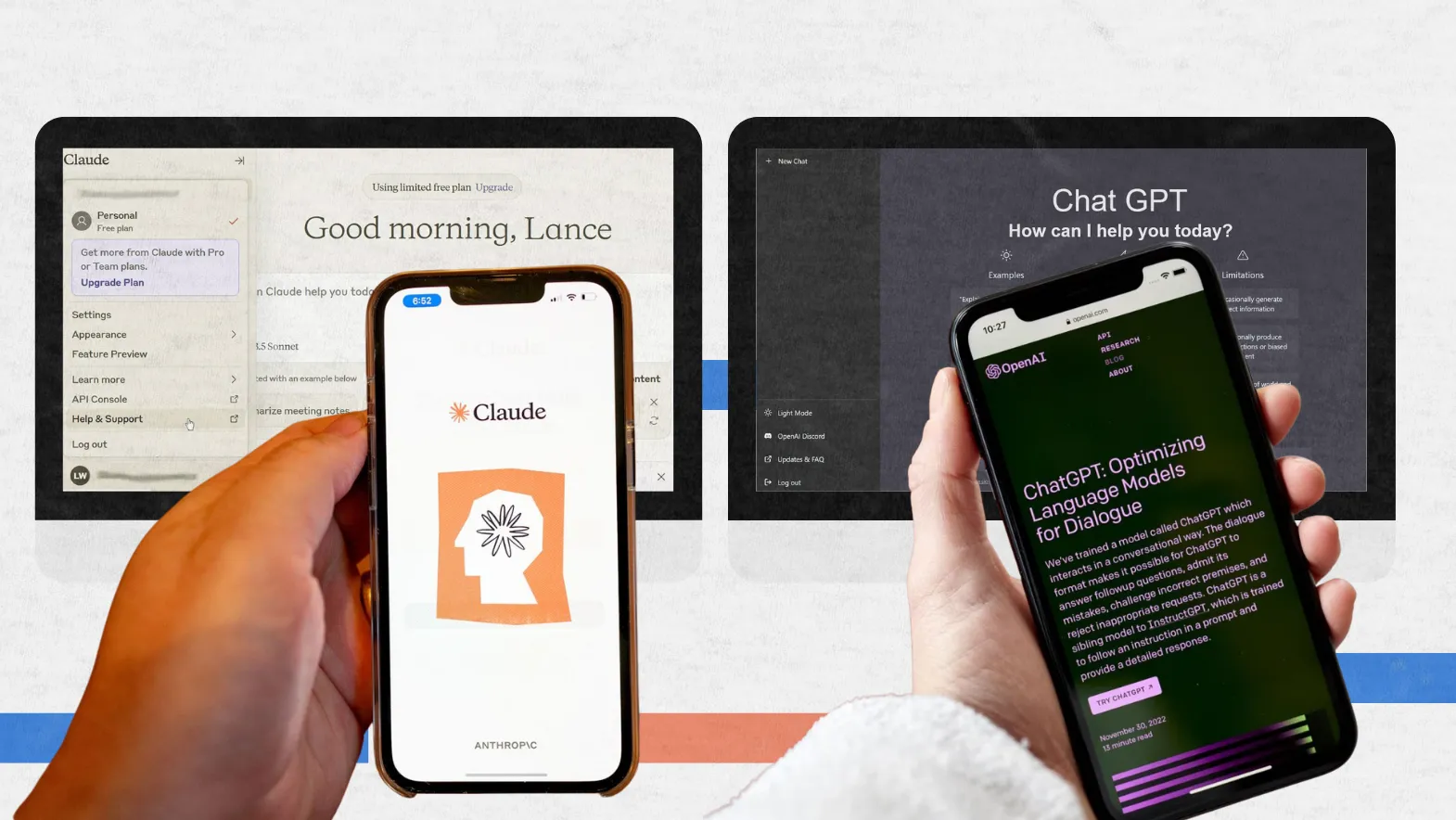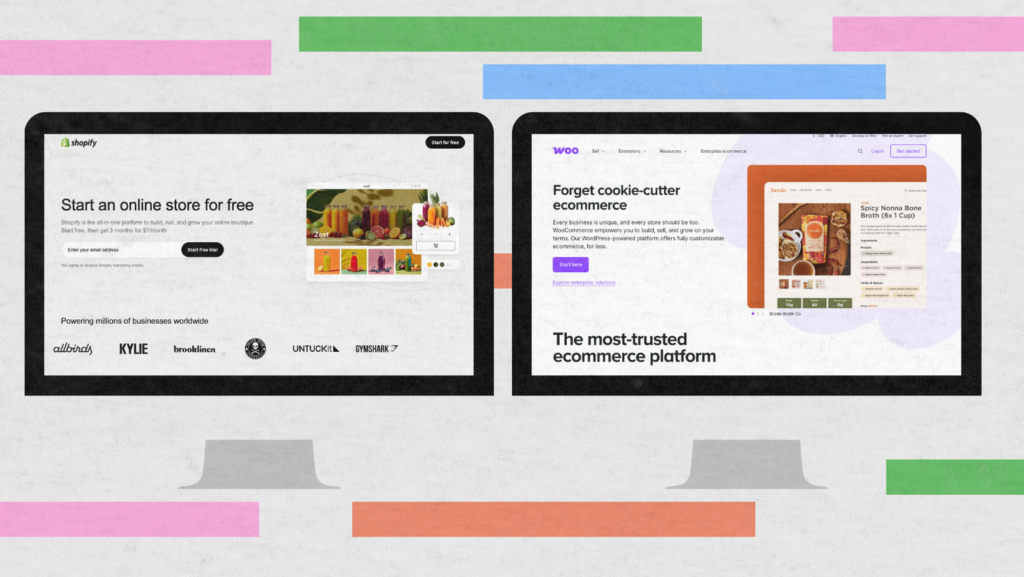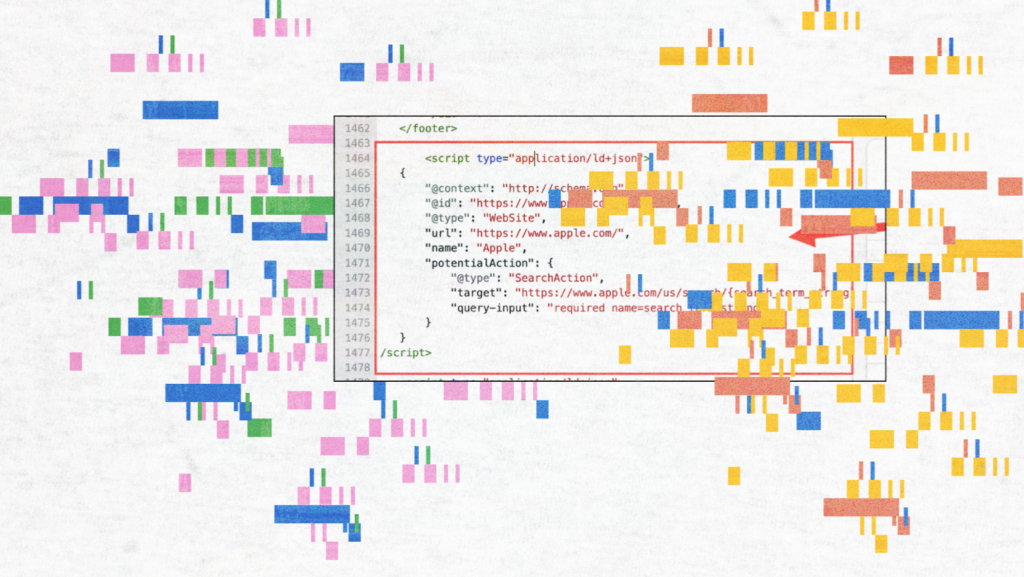When you hear or see the word “AI assistants”, there are probably two names that come to your mind: Claude and ChatGPT. Both are capable, swift, and remarkably human-like in their responses, but each has a different flavor and set of skills.
Think of it almost as a rivalry: two intelligent companions you are side by side with, each with his or her conversational style, problem-solving, and creativity.
The key question is – ChatGPT vs Claude, what is best for you? Let’s find out.
TL;DR
Claude (by Anthropic) and ChatGPT (by OpenAI) are leading AI assistants, each excelling in different areas.
Claude – Best for concise, natural writing, long-context reasoning (up to 500k tokens), and lower API costs. Great for analyzing documents and polite, principle-based responses.
ChatGPT – Best for deep reasoning, code execution, real-time browsing, and image/video generation. Excels in technical tasks, creative writing, and integrations (Microsoft, plugins, APIs).
Pricing: Both offer $20/month Pro plans, but Claude provides a larger context window and cheaper API usage.
Safety: Claude uses “Constitutional AI” for principle-guided responses; ChatGPT relies on human feedback (RLHF) and stricter content filters.
Integration: ChatGPT wins for ecosystem tools, plugins, and app integrations.
Verdict:
Choose Claude for long documents, affordable scaling, and measured responses.
Choose ChatGPT for coding, creative work, real-time data, and versatile integrations.
What are These Tools?
Before we discuss the nitty-gritty details of the Claude vs. ChatGPT comparison, let’s first understand these two AI giants.
Anthropic’s Claude and OpenAI’s ChatGPT are two prominent chat-based AIs driven by sophisticated large-scale language models. Although both excel in talking, content creation, solution propositions, and task user guidance, they have distinctive strengths and features.
This side-by-side discussion considers their
- Performance
- Usage
- Pricing model
- Safety measures
- Support for multimodality
- Tool integrations
- Developer support is needed to determine the best choice for one’s needs.
Their inception has generated debate among the tech community, more urgently so, as enthusiasm for integrating Claude and ChatGPT intensifies.
Claude vs. ChatGPT
| Category | Claude (Anthropic) | ChatGPT (OpenAI) |
| AI Models | Claude Sonnet 4, Claude 3.5 Haiku, Claude Opus 4 | GPT-4o, GPT-4o mini, o1, o1-mini |
| Context Window | Up to 500,000 tokens | Up to 128,000 tokens |
| Web Search | Yes | Yes |
| Image Generation | No | Yes |
| Video Generation | No | Yes (via Sora) |
| Voice Mode | Yes | Yes |
| Computer Use | Yes | Yes |
| Paid Tier | Claude Pro: $20/month | ChatGPT Plus: $20/month ChatGPT Pro: $200/month |
| Team Plans | $30/user/month – shared Projects | $30/user/month – workspace management + shared custom GPTs |
1. Performance
Nowadays, digital marketers heavily rely on Artificial Intelligence. Two of the most popular AI platforms are ChatGPT and Claude. They use these two specifically for Coding, Writing Articles, Research, and Everyday problem-solving. They offer top-tier performance but differ in their style, strengths, and features.
Below is a clear look at how each model performs across key areas, so you can choose the one that best fits your needs.
Claude
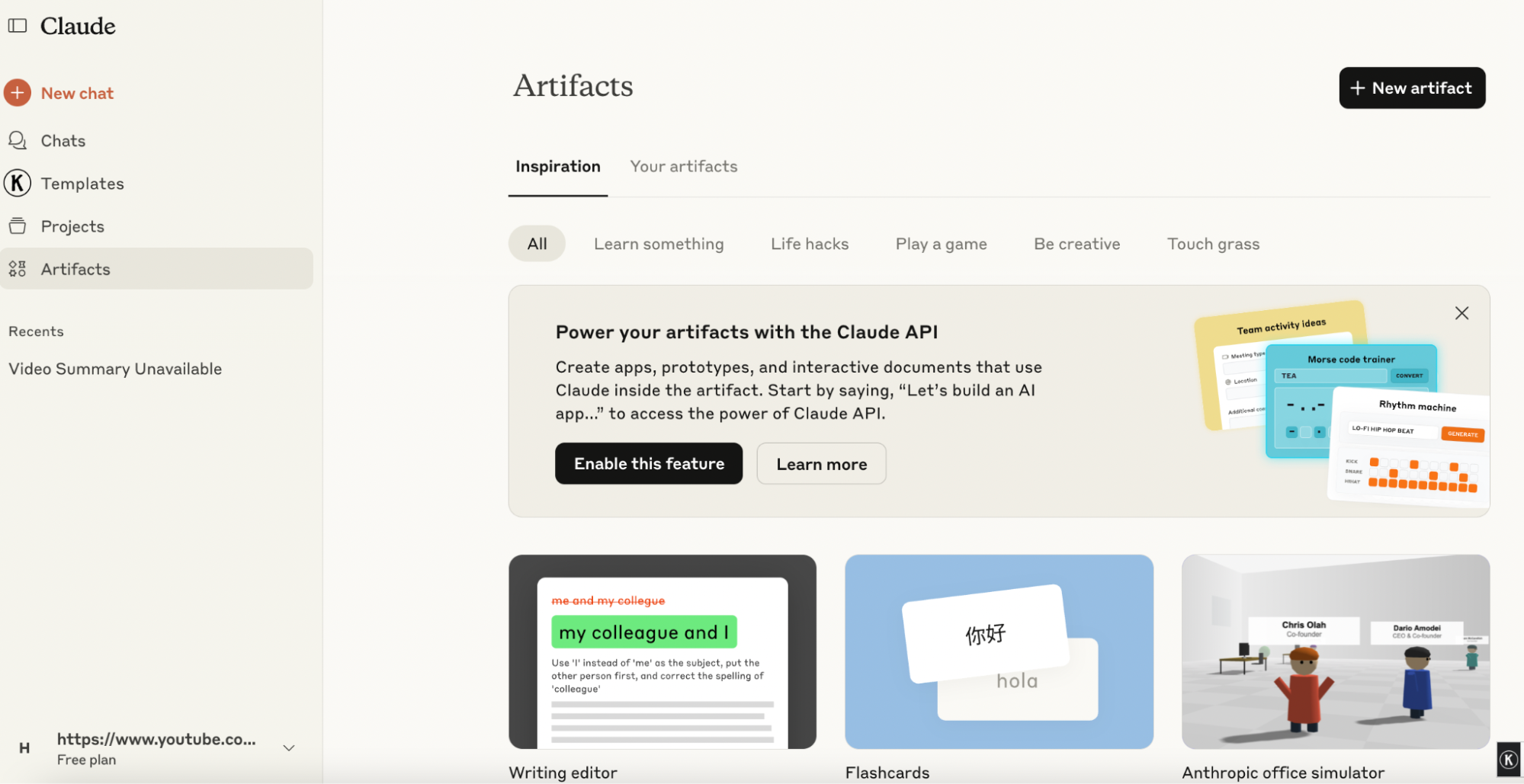
- Reasoning and Problem Solving: Claude 3.5 Sonnet excels at reasoning and solving complex problems; it sometimes outperforms GPT-4. Short answers are for those who favor short answers.
- Technical Activities: Code aide with readable, clear output; identifies frameworks ChatGPT may miss; has Artifacts for testing/previewing code, but cannot execute code.
- Writing Style: Produces detailed, technical, and human-sounding writing; no clichés; less formatted than ChatGPT; best suited for marketing, fiction, or creative writing.
- General Use: This tool offers fast, concise, and well-considered responses; it is best for those who need simplicity and limited expansion.
ChatGPT
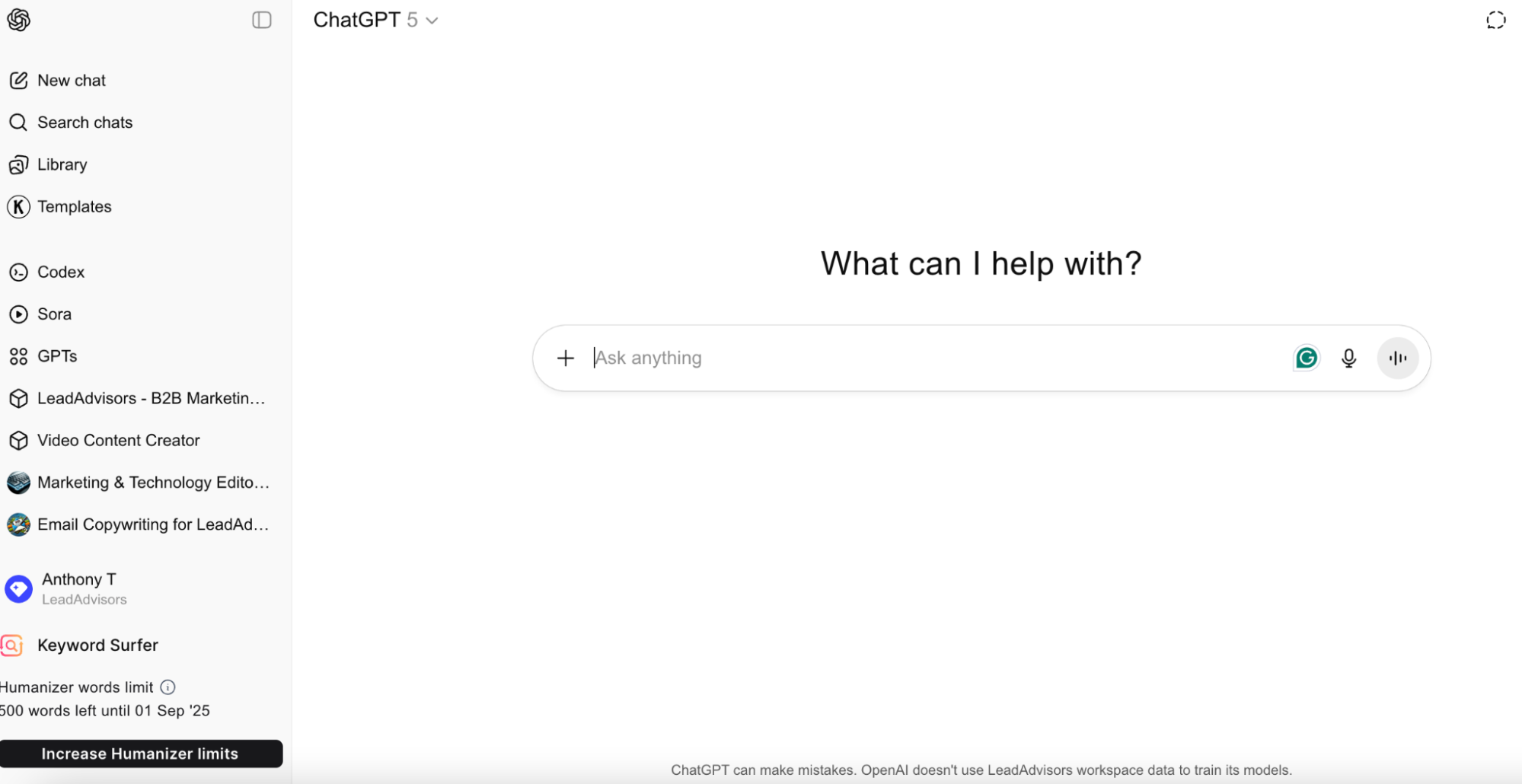
- Reasoning and Comprehending: Powered by GPT-4; excels in reasoning across exams and problem-solving; provides long, step-by-step answers for those who prefer depth.
- Coding and Technical Works: Features Code Interpreter / Advanced Data Analysis; can run Python, analyze data, and test code inside chat; stronger than Claude in code execution.
- Creative Writing: Generates marketing, technical, and creative writing that can be funny, poetic, and conversational; inclined toward formal or clichéd writing except when led by hand.
- Summary and Long Texts: Token limit of 128k (API), reduced in app; long texts must be segmented; produces readable, structured summaries.
- General Use: Defines concepts well, segments problems into steps, translates well; web browsing provides real-time updates — an edge over Claude.
So who won? Well, if you want concise answers in a natural form of writing, Claude wins. But if you want detailed reasoning, code execution, structured summaries, and real-time research, making it the strongest technical companion, ChatGPT is the best fit for you.
Real-time Use Cases
Claude and ChatGPT are both strong AI assistants, but one consistently offers broader capabilities across use cases. Take a look at this comparison:
| Use Case | Claude | ChatGPT |
| Business | Handles long docs; strong in analysis; Slack integration. | Enterprise product; great for broad tasks; integrates with Microsoft tools. |
| Education | Processes full textbooks; structured explanations. | Digital tutor; step-by-step answers; student-friendly. |
| Research | Analyzes large papers/datasets; strong long-context. | Broad knowledge; web browsing for recent info. |
| Productivity | Good for journaling and long-form planning. | Strong assistant; app integrations; scheduling help. |
| Content | Human-like, detailed text; less fluff. | Fast drafts, image generation, publishing plugins. |
| Customer Service | Uses full manuals; polite tone; cost-efficient. | Real-time data via APIs; widely used in chatbots. |
The verdict? The answer is self-evident – ChatGPT. It is because of its versatility, real-time access, integrations, and ability to execute code that it is a more reliable all-around choice.
2. Pricing
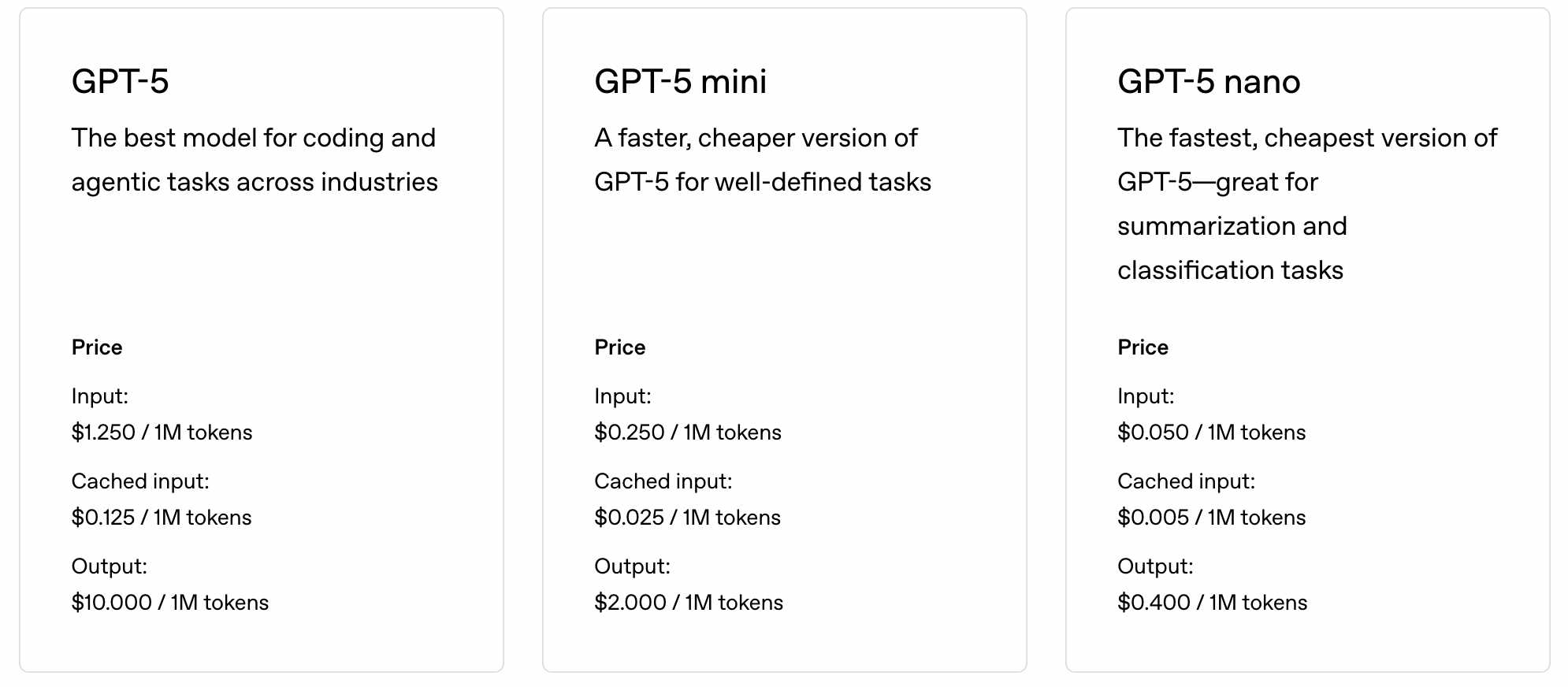
Access to Claude and ChatGPT comes in both free and paid versions, each with different limits, features, and pricing models. Here’s a breakdown of how they compare.
Free Access:
- ChatGPT: The free tier uses GPT-3.5 and has unlimited chats, but is slower at peak times.
- Claude: Free tier (Claude Instant), ~40–50 messages/day limit, resets daily.
Paid Plans ($20/month):
- ChatGPT Plus: Access to GPT-4, faster responses, multimodal features (vision, image generation), ~32k token context (beta).
- Claude Pro: Access to all Claude models with 100k context, ~45 messages/5 hours (~200+ daily), includes Projects/Knowledge Base.
Enterprise/Teams:
- ChatGPT Enterprise: ~ $30/user/month, unlimited GPT-4, 32k context, team features, admin tools, Microsoft integration.
- Claude Teams/Enterprise: ~ $30/user/month, collaboration features, AWS Bedrock access, Google partnerships.
API Pricing:
- ChatGPT: GPT-3.5 is very cheap; GPT-4 is premium ($0.03/1k input, $0.06/1k output tokens).
Claude is much cheaper per token (Claude 2 ~ $ $0.008/1k input, $0.024/1k output), making it cost-effective for large volumes.
Claude is obviously the winner. Why? Its Pro plan offers a much larger 100k context window, strong message limits, and significantly cheaper API pricing, heavy or large-scale use.
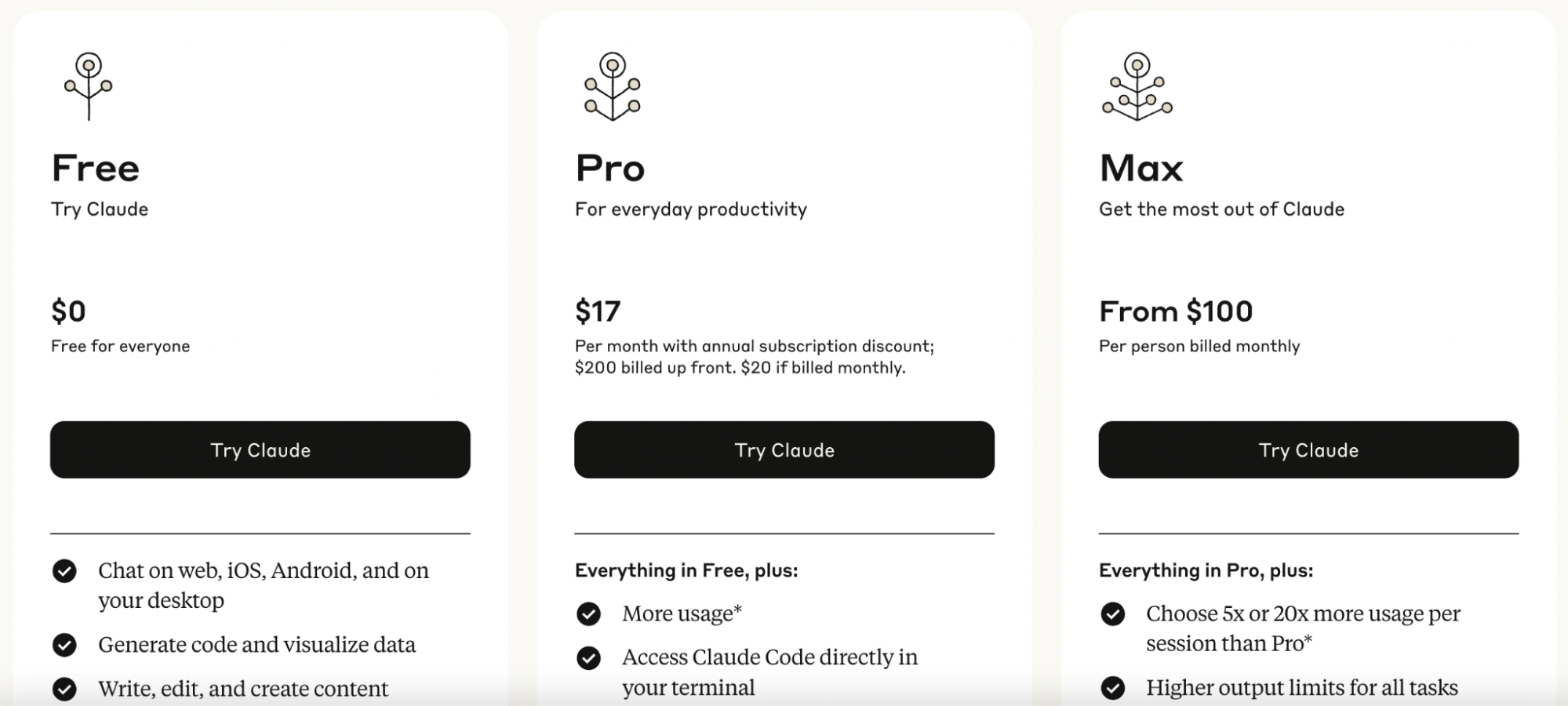
3. Safety and Alignment
AI safety and alignment are critical when comparing Claude vs. ChatGPT, since both are designed to avoid harmful outputs, misinformation, and misuse. While they share the same goal, their methods for achieving it differ significantly.
ChatGPT
- Trained by RLHF (human feedback) and strict policies.
- Often errs on the side of refusal for sensitive requests.
- Has safe endings, at times extremely cautious or cliché.
- Improved at reducing hallucinations, but still makes confident mistakes.
- Utilizes browsing and moderation functionalities for anchoring answers and preventing abuse.
Claude
- Built on Constitutional AI, guided by written principles.
- Refusal-heavy, but often explains the reason politely.
- Tends to be assessed, sometimes states, “I’m not sure.”
- Hallucinates slightly less in some tests; careful with biases.
- No web access or image generation reduces misuse risks.
Verdict: Results Both are extremely safety-minded, yet Claude has the edge for aligning and careful treatment through its principle-based training and mannerly, open refusals.
4. Tool Integration and APIs
Let’s take a look at how Claude and ChatGPT stack up when it comes to tool integration and APIs.
| Category | Claude | ChatGPT |
| Plugins & Tools | No plugin marketplace has Projects, Knowledge Base, and Artifacts for file-based workflows. | Full plugin store; built-in browsing, Code Interpreter, and DALL·E image generation. |
| File Workflows | Strong at document Q&A; allows uploads and downloadable outputs. | Can analyze files, but results stay inside the chat. |
| APIs | Simple text-in/text-out API; no fine-tuning or function calling. | Mature API with function calling, fine-tuning, and strong developer support. |
| Ecosystem | Integrated into Slack, Poe, and AWS Bedrock; still growing. | Widely embedded in Microsoft Office, GitHub Copilot, apps, and extensions. |
ChatGPT wins here with richer tool integration, more features, and a stronger ecosystem, while Claude is more limited but shines in file-based workflows.
What to Consider in an AI Assistant
Before you choose between ChatGPT and Claude, it’s helpful to take a step back and consider what you care about most in an AI assistant.
For some, it is quick responses and short answers. Others may prioritize large context windows for working with documents or integrations with your current tools to simplify workflows.
Price and scalability can be vital if you use the assistant extensively for work or development. Of course, Safety should not be forgotten – how each of these AIs handles sensitive material, refusals, and misinformation can determine how safe it feels to use on a daily basis.
Lastly, consider your use case initially: Do you want a productivity assistant for the whole process or a companion for document-intensive tasks? Determining your requirements will make the decision between Claude and ChatGPT much easier.
Frequently Asked Questions
Which is more appropriate for business purposes, Claude or ChatGPT?
Can Claude or ChatGPT replace human experts?
Which do I select for productivity in my personal life?
Claude vs. ChatGPT? Which One Should You Choose?
Both Claude and ChatGPT are top-notch AI helpers, yet each excels in its own unique manner.
Claude’s strengths are its capacity for huge context windows, its ability to give safe and measured responses, and its file-based workflows—all of which make it a superb choice for businesses and users working with large amounts of text.
ChatGPT stands out in terms of versatility. With multimodal functionality, real-time browsing, deep integrations, and developer-friendly APIs, it is a more comprehensive assistant for daily productivity, technical tasks, and creative projects.

